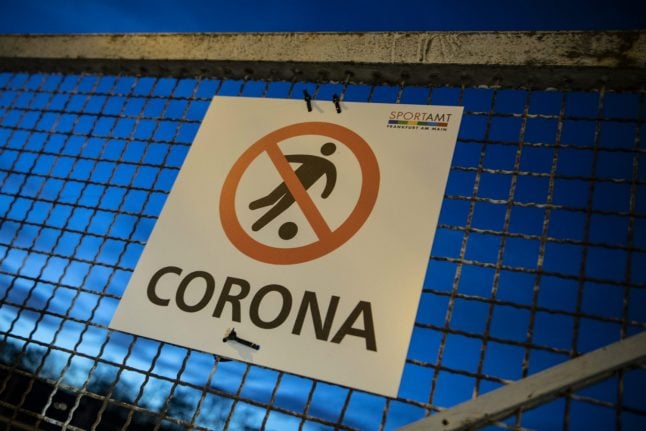A crowd of 50,000 filled Ibrox Stadium in Glasgow on Thursday, March 12th to see Rangers lose 3-1 to Bayer Leverkusen in the Europa League.
Other matches that night were played behind closed doors, or postponed altogether, as Italy announced its death toll from the virus had passed 1,000.
Fast forward 31 days and the figures make for grim reading throughout Europe, with Italy, Spain, France and the United Kingdom the worst hit. Countries across the continent are now weeks into restrictive lockdowns.
Nobody knows when sport will be allowed to restart behind closed doors let alone before crowds. The psychological impact of the current situation means many people may well now have second thoughts about mixing with vast crowds at a football match in future.
READ ALSO: Coronavirus forces first ever Bundesliga game behind closed doors
German football authorities are set to decide this week whether Bundesliga matches can resume behind closed doors next month, and players are already back in training.
Just 239 people would reportedly be allowed at each game, reports say, but resuming games would still require a significant testing operation.
“This must be possible,” Wolfgang Kubicki, vice president of Germany's Bundestag, or lower house of parliament, told Sky Sport.
“Especially if we can determine, by a quick test, that none of the players are infected and there is no danger of triggering a chain of infection.”
'Safe and appropriate'
In any case, as Liverpool manager Jürgen Klopp admitted when the Premier League season was suspended on March 13th “Today, football and football matches really aren't important at all.”
Yet his club are among those who have been worst hit by the suspension, given that they stand on the brink of winning the English title for the first time in 30 years.
In England, authorities have said football will not return until it is “safe and appropriate” to do so.
READ ALSO: German Bundesliga suspended over coronavirus fears
However, UEFA has remained optimistic about the prospect of finishing the European seasons and is working on the possibility of playing in July and August if need be.
Aleksander Ceferin, the UEFA president, has also said there is “no way” runaway leaders Liverpool should be denied the Premier League title, and suggested that if the remaining matches cannot be played “we will need to find a way”.
Scrapping a season that was close to its conclusion would not make sense, but it remains to be seen if the campaign can resume.
 An empty Borussia-Park stadium in Mönchengladbach. Photo: DPA
An empty Borussia-Park stadium in Mönchengladbach. Photo: DPA
'Critical situation'
“No match, no competition, no league is worth risking a single human life,” FIFA president Gianni Infantino has said. “It would be more than irresponsible to force competitions to resume if things are not 100 percent safe.”
The damage caused by Covid-19 has been dramatic. Even players are not worrying about returning to action.
“It's not the thing I am worrying about. I am thinking about my family first and foremost and then about getting this sorted. This is a critical situation,” Paris Saint-Germain's Pablo Sarabia told AFP.
Leading football players and figures — from Juventus and France star Blaise Matuidi to Arsenal coach Mikel Arteta — have tested positive for the virus. Former Real Madrid president Lorenzo Sanz died.
Euro 2020 was postponed by a year, as was the Copa America.
Players at top sides have taken pay cuts, of 70 percent in the case of Barcelona.
There has been an unseemly dispute in England after UK Health Secretary Matt Hancock called for Premier League players to accept wage cuts.
Wealthy English clubs have also faced a backlash for tapping into a government scheme allowing them to furlough non-playing staff. Liverpool performed a U-turn and apologised for having applied.
Profound changes?
However, those wealthy clubs cannot afford to do without the income they get from broadcasters. That is at the core of their desperation to complete this season.
In England, the cost to Premier League clubs of having to reimburse broadcasters for matches not played has been put at 762 million pounds ($951 million).
While idle players are stuck at home, trying to follow fitness programmes in their front rooms or gardens, many wonder if football will be profoundly changed because of the financial impact of this crisis.
“The economy will be different and so will football. Maybe it will be better,” Everton manager Carlo Ancelotti told Italy's Corriere dello Sport.
That remains to be seen.



 Please whitelist us to continue reading.
Please whitelist us to continue reading.
Member comments